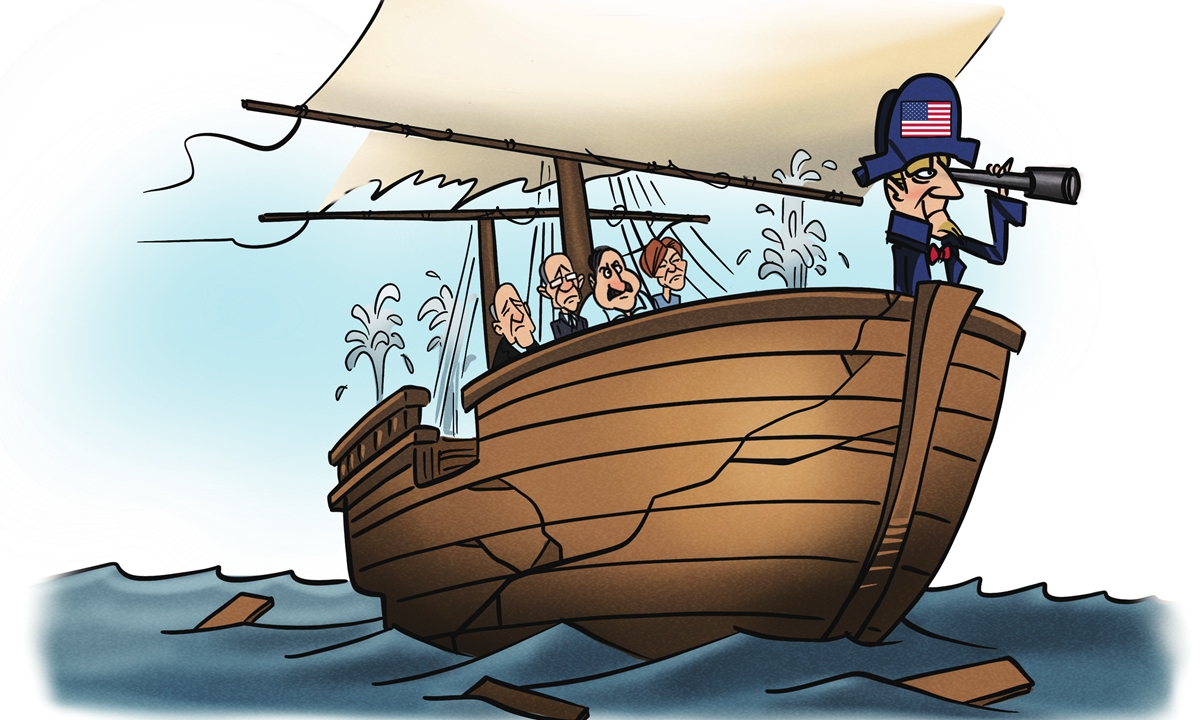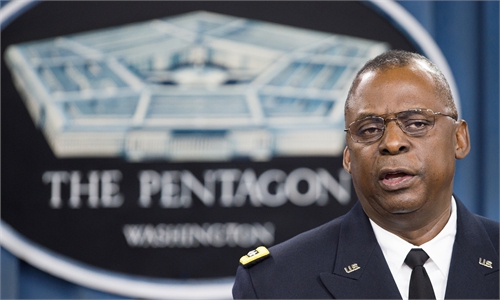
Illustration: Liu Rui/GT
Kenneth S. Wilsbach, commander of the US Pacific Air Forces, said on Friday that China wants to "return back to the glory days of [imperial] China where everybody else was a vassal state and everybody [kowtowed] to the emperor," according to a South China Morning Post report. Wilsbach also hyped up China's "militarization" of the South China Sea and "aggressive actions" that fueled distrust of China.It's not surprising to see such comments from a high-level US military official. In terms of China-US relations, high-level officials at the Pentagon, especially those in charge of the Pacific region, have been hostile toward China. They fear that the US maritime and air hegemony in the Pacific will be shaken by China's constantly growing military power. On the other hand, they want to get a bigger budget for their own services. They therefore exaggerate the situation and sensationalize the "China threat" theory to emphasize the importance of their own services.
The key words of Wilsbach's remarks were "vassal state." Washington now wishes to build a more comprehensive military alliance system in the Indo-Pacific. Why? Because its current allies of Japan, South Korea, and Australia cannot, in the eyes of Pentagon, provide enough military support that Washington needs to deter and besiege China.
Hyping up slanders that China wants to dominate countries in the region actually reflects the real intention of the US. Indeed, Washington wants to have more countries as its vassals to prevent them from developing close relations or reaching defense cooperation agreements with Beijing.
The Pentagon aims to have more footholds around China in addition to Japan, South Korea and Australia. The South China Sea that locates between the three countries is relatively a weak point for the Pentagon, where it aims to find more "friends."
The US Navy has routinely deployed its warships in the region to conduct provocative operations. It is very likely that the US Air Force also prefers similar moves to gradually establish footholds in countries like Vietnam, the Philippines, Malaysia, and Indonesia. Such intent is increasingly clearer. This is especially apparent to regional countries that don't have military alliances with the US.
By smearing the moves some countries had made to develop friendly ties with China as "kowtow," Washington is trying to pile pressure on these countries with psychological warfare in order to reach its political and military goals. It is completely groundless to label China's equal and mutually beneficial relations with its neighbors as "coercion." Forcing others to kowtow, pledge guilty, and show fealty is exactly what Washington has been doing and upholding. Wilsbach's words reveal the US' hegemonic essence.
After World War II, Washington has been dominating the alliance system in the West. During the Cold War era, many Western countries relied on Washington for their own defense. The US thus became the dominator of discourse power. It influences international politics, economy, diplomacy, and even defense. But such a norm to deter others with the power of military has long been outdated. It goes against the current era of development. As a result, although Washington leads various military alliances, more and more US allies are showing their resolution to seek autonomy both politically and militarily.
Washington needs imaginary enemies to sustain its hegemonic system - unfortunately, Russia and China have been made such "enemies." Both countries are demonized within the DC beltway spin machine of lobbyists. Indeed, Washington is trying to rope in more countries, but its excuses are unfounded. Many countries that Washington tried to woo have seen China's sincerity of sharing its development dividend with them as well as China's constant adherence to addressing disputes through peaceful talks.
China has proven that it is on a different path from the US. Instead of using force to conquer others, Beijing focuses on developing win-win cooperation. Many countries have perceived this. But they are sometimes forced to echo the US due to the latter's "big stick."
Washington has taken itself as a rules-maker. Regarding the Indo-Pacific, Washington believes its rules are the only ones to be abided by. Anything else that is not favored by the US is regarded by the US as "illegal." This is typical national selfishness with US characteristics. Asking other countries to act in line with Washington's interests will probably seriously harm all countries that go down the road with the US.
The author is a Beijing-based military analyst. opinion@globaltimes.com.cn



